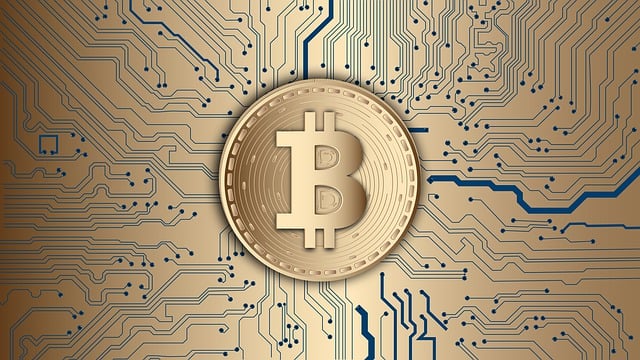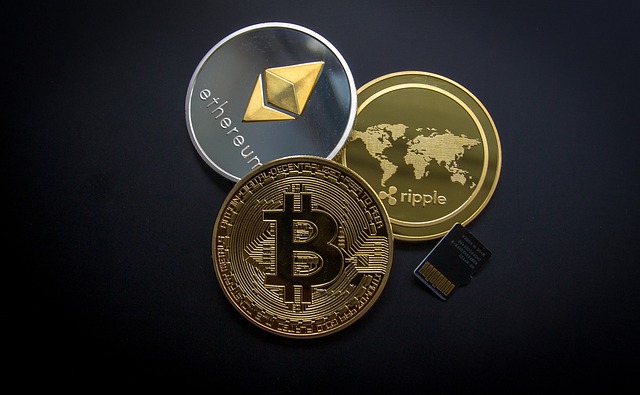Decentralized Finance (DeFi) is revolutionizing traditional financial services through blockchain technology, offering open-source platforms for borrowing, lending, trading, and earning interest. However, its decentralized nature presents significant regulatory challenges related to consumer protection, money laundering, and tax evasion. As DeFi gains popularity globally, striking a balance between harnessing its potential and addressing these issues is crucial for establishing consistent rules across borders and ensuring a safe, stable, and accessible financial ecosystem for all participants.
“Decentralized finance (DeFi) has emerged as a disruptive force in the traditional financial landscape, promising greater accessibility and transparency. However, alongside its potential, DeFi faces significant regulatory challenges globally. This article explores the rise of DeFi, its transformative potential in financial services, and the unique complexities it presents for regulators. We delve into the technical, legal, and compliance aspects, arguing for a balanced approach to crafting effective regulatory frameworks that can harness DeFi’s power while mitigating risks.”
- Understanding Decentralized Finance (DeFi): A Brief Overview
- The Promise and Potential of DeFi: Revolutionizing Financial Services
- Regulatory Challenges in the DeFi Space: A Global Perspective
- Unique Complexities of DeFi Regulation: Technical, Legal, and Compliance Aspects
- Towards a Balanced Approach: Strategies for Effective DeFi Regulatory Frameworks
Understanding Decentralized Finance (DeFi): A Brief Overview

Decentralized Finance (DeFi) is a revolutionary concept in the financial world, aiming to democratize access to various financial services by eliminating traditional intermediaries like banks. It operates on blockchain technology, creating open-source platforms that allow users to borrow, lend, trade, and earn interest without any central authority. DeFi promises greater transparency, security, and accessibility, enabling individuals to manage their funds directly from their digital wallets.
However, as DeFi gains traction, it faces significant regulatory challenges. Due to its decentralized nature, traditional financial regulations may not apply effectively, creating a legal grey area. Concerns around consumer protection, money laundering, and tax evasion are at the forefront of these challenges. As DeFi platforms operate across borders, international cooperation is essential to establish consistent rules, ensuring fair practices while protecting users from potential risks associated with this emerging financial ecosystem.
The Promise and Potential of DeFi: Revolutionizing Financial Services

Decentralized finance (DeFi) represents a promising evolution in financial services, leveraging blockchain technology to create open, transparent, and accessible systems. By eliminating intermediaries like banks, DeFi platforms aim to democratize access to financial tools such as lending, borrowing, trading, and savings. This shift has the potential to revolutionize how individuals interact with their money, fostering innovation and enhancing financial inclusion globally. Users can participate directly in a peer-to-peer economy without the need for traditional financial gatekeepers.
However, as DeFi gains traction, it also faces significant regulatory challenges. The decentralized nature of these systems complicates oversight and enforcement, raising concerns about consumer protection, money laundering, and tax evasion. Regulators worldwide are grappling with how to balance the benefits of DeFi while addressing these issues. Striking the right balance is crucial to ensuring that the revolutionary promise of DeFi translates into a safe and stable financial future for all participants.
Regulatory Challenges in the DeFi Space: A Global Perspective

The decentralized finance (DeFi) space has experienced rapid growth, attracting global attention for its innovative approach to traditional financial systems. However, this rapid evolution has also highlighted significant regulatory challenges that vary across different jurisdictions worldwide. DeFi platforms operate outside the boundaries of conventional banking regulations, presenting unique complexities that traditional financial oversight frameworks struggle to address. One of the primary concerns is ensuring consumer protection and market integrity without stifling innovation.
Global regulators face the delicate task of creating a balanced approach that promotes fair practices while allowing for the potential benefits of DeFi. The decentralized nature of these platforms makes it challenging to implement traditional compliance measures, such as Know Your Customer (KYC) and Anti-Money Laundering (AML) checks. As a result, regulatory bodies are navigating uncharted territory, exploring approaches like smart contract audits, on-chain analytics, and collaboration with blockchain industry groups to develop effective yet adaptable guidelines for the DeFi sector.
Unique Complexities of DeFi Regulation: Technical, Legal, and Compliance Aspects

Decentralized finance (DeFi) presents unique complexities in terms of regulation, spanning technical, legal, and compliance domains. The lack of central authority or traditional financial intermediaries in DeFi creates challenges for existing regulatory frameworks designed around centralized systems. Technical aspects, such as smart contract code and decentralized protocols, must be meticulously audited to ensure security and prevent vulnerabilities that could lead to significant losses.
Legal uncertainties abound in the DeFi space, with jurisdiction over digital assets and innovative financial products still largely undefined. Compliance requirements, including anti-money laundering (AML) and know-your-customer (KYC), are also complex to implement in a decentralized environment where user identities and transactions can be pseudonymous or completely anonymous. These multifaceted challenges necessitate ongoing dialogue between regulators, industry experts, and developers to establish clear guidelines that foster innovation while safeguarding users.
Towards a Balanced Approach: Strategies for Effective DeFi Regulatory Frameworks

In the rapidly evolving landscape of decentralized finance (DeFi), striking a balance between innovation and regulation is paramount to ensure stability and accessibility. DeFi’s inherent promise of financial inclusion and decentralization has garnered significant attention, but it also presents unique regulatory challenges that require thoughtful strategies. As the DeFi space continues to grow, regulators must adopt a nuanced approach, fostering an environment that encourages healthy competition while mitigating potential risks.
One key strategy involves collaboration between industry stakeholders, policymakers, and technical experts. Developing comprehensive regulatory frameworks requires a deep understanding of blockchain technology, smart contract vulnerabilities, and market dynamics. This collaborative effort can lead to the creation of adaptable regulations that address specific DeFi use cases while allowing for growth and experimentation. Additionally, promoting educational initiatives can empower users to make informed decisions, enhancing their digital literacy in the process.
The rise of decentralized finance (DeFi) presents an exciting opportunity to revolutionize financial services globally, offering greater accessibility, transparency, and potential for economic growth. However, navigating the complex landscape of DeFi requires addressing significant regulatory challenges. Balancing innovation with stability is crucial, as the unique technical and legal complexities of DeFi demand tailored approaches. By adopting a balanced strategy that considers both the promise and potential risks, regulatory frameworks can foster a healthy environment for DeFi to thrive while protecting users and maintaining financial integrity. This comprehensive understanding is essential in shaping the future of finance and ensuring that decentralized solutions meet the highest standards of safety and reliability.
